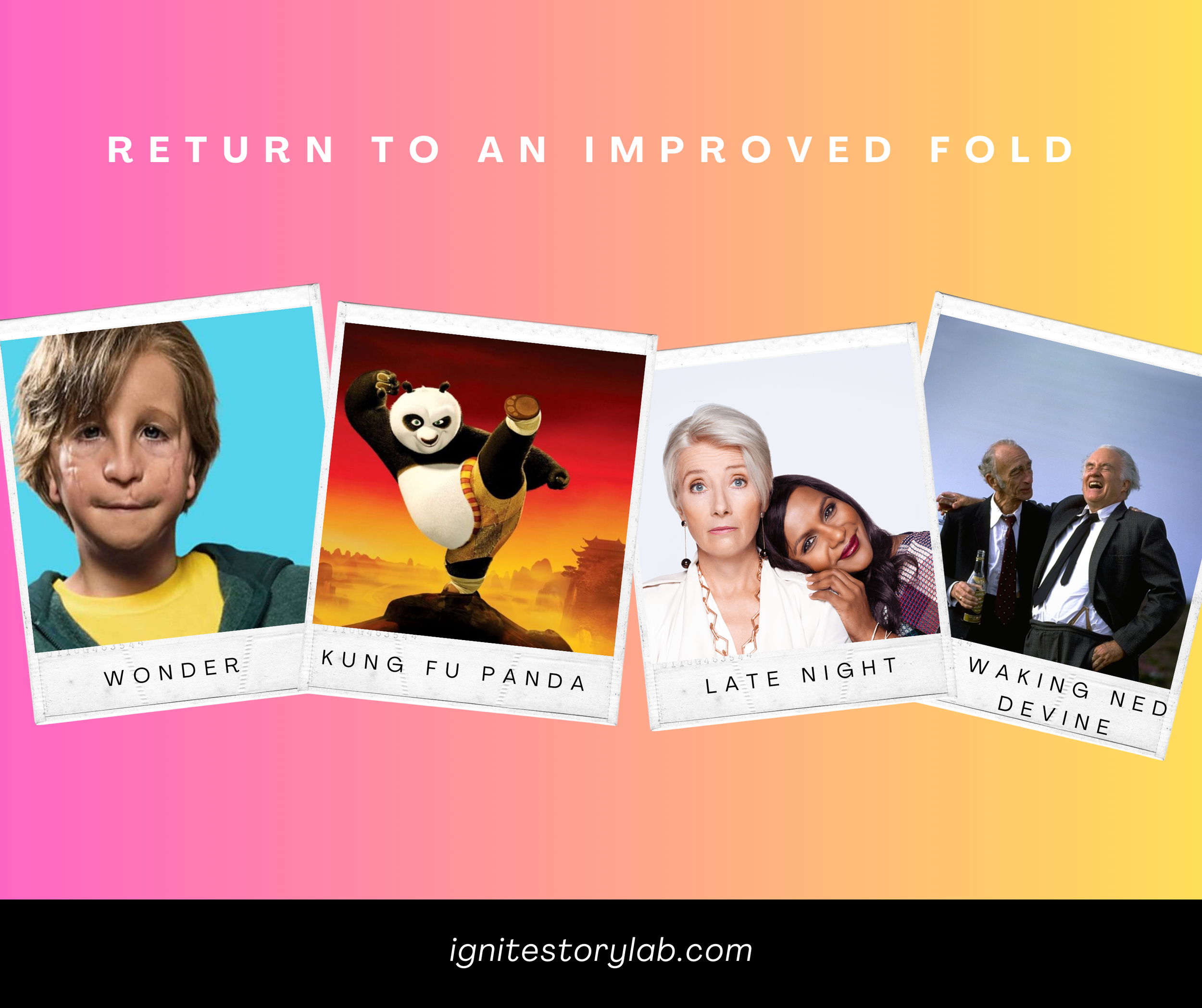You Can Never Go Home Again: The Return to an Improved Fold
Part 3: The Return to an Improved Fold
The next way a hero can go home again is to return to an improved fold. That means the system controlling the world of the story has been changed. It was influenced in some positive way by the journey of the hero. Let’s look at some examples:
The Norm Breaker’s struggles inspires the system to grow and be better. When Auggie in the film Wonder (2017), starts school, his disability and disfigurement has him facing a lot of challenges. By the end of the story, not only has he gone through tremendous change, but most of the people around him have too. His family, his friends, former enemies, even the school environment has been transformed by witnessing Auggie’s spirit and courage. This is a common pattern for Dramas.
Other examples: Hidden Figures (2016 film), Arrival (2016 film), and Whale Rider (2002 New Zealand film).
The world of the story is improved because a threat has been removed. When Po the Panda in Kung Fu Panda (2008 film) is chosen to be the Dragon Warrior, everyone thinks it’s a mistake, but as Po learns to believe in himself, he can eventually defeat Tai Lung, the revengeful snow leopard warrior. Po succeeds where all the other Kung Fu masters fail and he makes the Jade Palace temple and the surrounding village safer. This is also a common Drama pattern where the norm-breaking underdog finds enough power to take down a powerful opposing system.
Other examples: In Galaxy Quest (1987 film), Jason Nesbit has killed the alien Sarris; In Ever After: A Cinderella Story (1998 film), Danielle is able to escape the evil Pierre and sends her two nemeses Rodmilla and Margaurite into servitude; and in Black Panther (2018 film) T’Challa is able to defeat Eric Killmonger and his allies.
Through compromise, the system has become a kinder, gentler place. Molly in Late Night (2019 film), has been hired by the washed-up late night host, Katherine. Molly is the first woman and person of color to be on the show’s writing staff. It’s rocky from the start as the network wants to replace Katherine and her troublesome ego. Eventually, Katherine learns how valuable Molly is and humbles herself to follow her lead. By the end of the film, the show’s writing room is more diverse and supportive and Katherine has reestablished her career and becomes a more collaborative boss. This pattern of compromise is most often found in Comedies.
Other examples: As in most romances, Persuasion, has two people sacrificing to come together (1817 book), formerly warring ex-spouses come together in a compromise in Mrs. Doubtfire (1993 film), and in Beetlejuice (1991 film) a dead couple stops trying to exorcise the new family out of their home and finds a way to live together in harmony.
The system has been hoodwinked into improvement. A whole village in Waking Ned Devine (1998 British film), agrees to a deception in order to cash in on a dead neighbor’s lottery ticket. Everyone ends up winning in this story, but the lotto man and the law are none the wiser. This pattern is most often found in Comedies and Satires with a Rogue Hero.
Other examples: A Funny Thing Happened on the Way to the Forum (1966 film), His Girl Friday (1940 film), and The Sting (1973 film).
Because there are often multiple systems in a story, these endings can come in a mix. For example, In Ever After, Danielle takes down her adversaries, but she changes another system in the story: that of the royals, in particular Prince Henry, who will undoubtably be a better ruler thanks to Danielle’s influence.
These are some of the most common patterns we were able to identify for the Return to an Improved Fold dynamic. Can you find other examples? What does it do to the power dynamics to have the fold improve? Do these kinds of stories speak more to our systems or to us as Norm Breakers? Look for these Return to the Fold Dynamic in the stories you are consuming.
Next week: Part 4: The Hero Leaves Their Fold to Find a Better One

